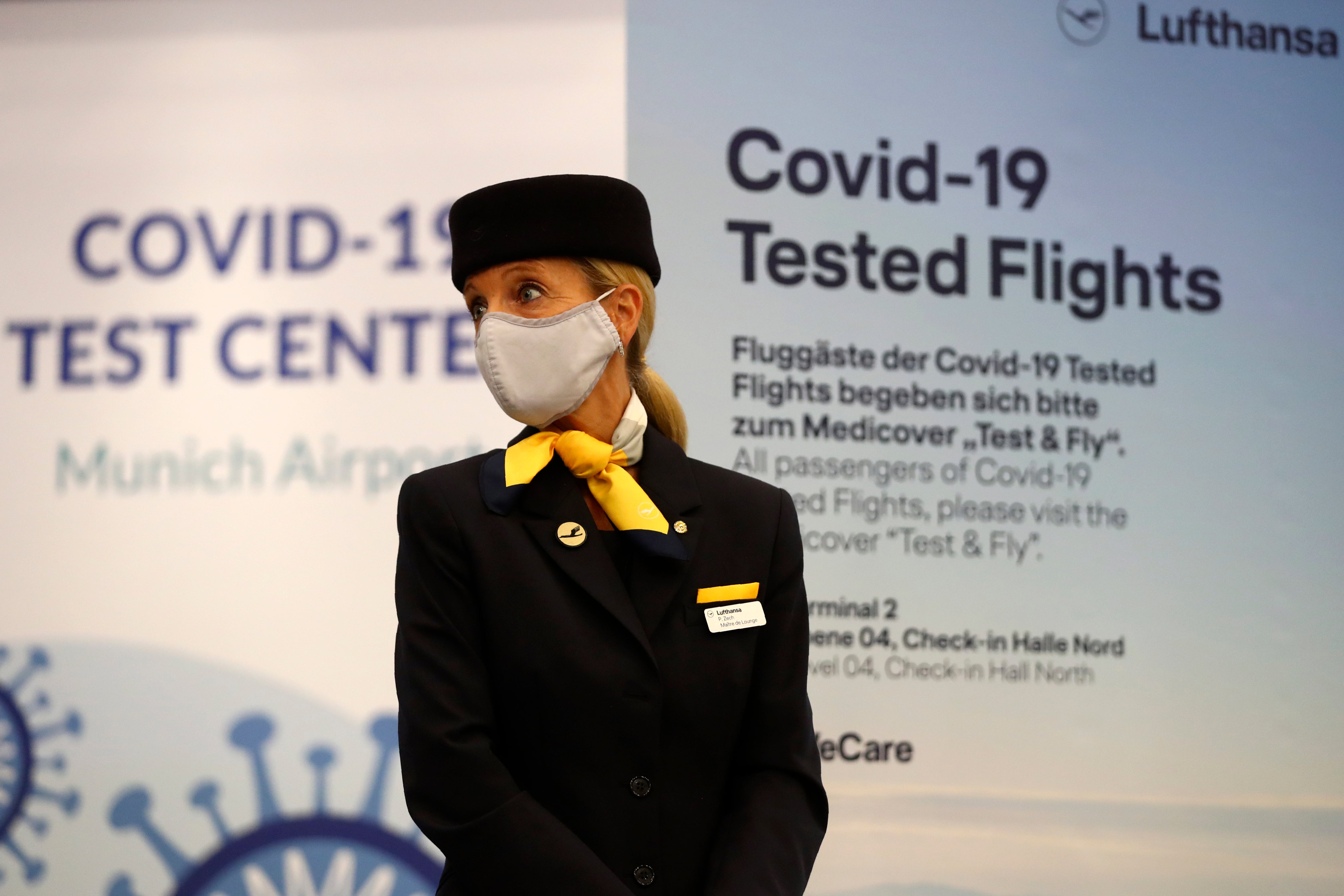Germany wipes its list of COVID 'high-risk areas' clean
Germany is removing all countries currently on its list of “high-risk areas” as part of a rethink of its coronavirus travel rules that will take effect on Thursday

Your support helps us to tell the story
From reproductive rights to climate change to Big Tech, The Independent is on the ground when the story is developing. Whether it's investigating the financials of Elon Musk's pro-Trump PAC or producing our latest documentary, 'The A Word', which shines a light on the American women fighting for reproductive rights, we know how important it is to parse out the facts from the messaging.
At such a critical moment in US history, we need reporters on the ground. Your donation allows us to keep sending journalists to speak to both sides of the story.
The Independent is trusted by Americans across the entire political spectrum. And unlike many other quality news outlets, we choose not to lock Americans out of our reporting and analysis with paywalls. We believe quality journalism should be available to everyone, paid for by those who can afford it.
Your support makes all the difference.Germany is removing all countries currently on its list of “high-risk areas” as part of a rethink of its coronavirus travel rules that will take effect on Thursday.
The country's disease control center, the Robert Koch Institute, said that from now on Germany's list will only include places where high infection rates are linked to variants of COVID-19 that are more virulent than the currently dominant omicron variant, which in many cases leads to relatively mild illness.
That change will result in the current list of “high-risk areas," which contains dozens of countries and territories, being wiped clean from Thursday on. Health Ministry spokesman Andreas Deffner said Wednesday, however, that Germany will still require people to show proof of vaccination, recent recovery or a negative test to enter the country.
People arriving from “high-risk areas” who either haven’t recovered recently or been fully vaccinated have to self-isolate for 10 days, which can be cut to five with a negative test. Everyone arriving from those areas has to register online before arrival.
For countries that do end up on the list, quarantine requirements will be relaxed for under-12s — who will be able to avoid self-isolating with a negative test — and dropped for children under 6.
Germany's coronavirus infection rate is drifting downward slowly after a wave of infections with omicron peaked last month. Chancellor Olaf Scholz and the country’s 16 state governors agreed in mid-February on a three-step plan to end most restrictions by March 20.
___
Follow AP’s pandemic coverage at https://apnews.com/hub/coronavirus-pandemic